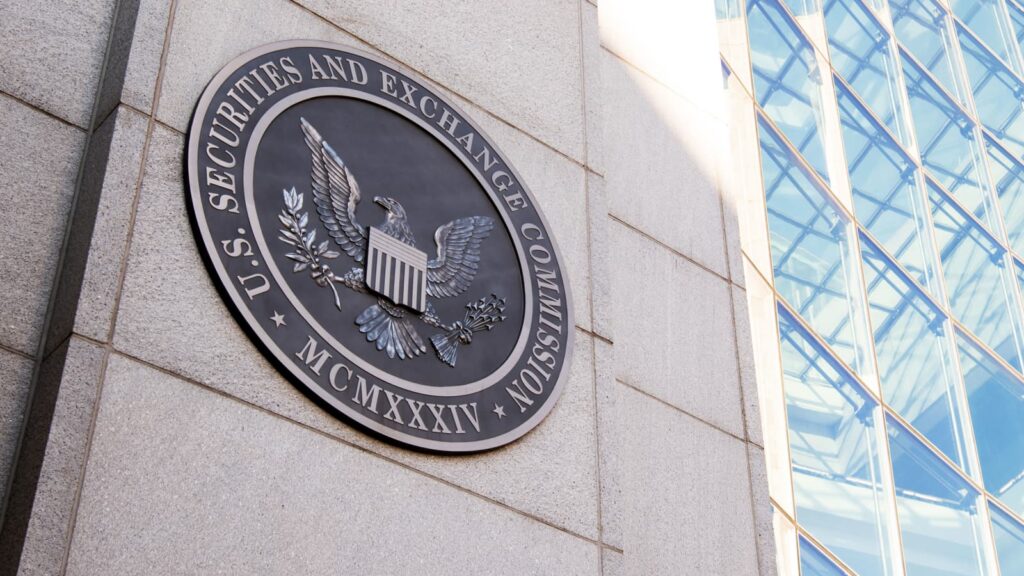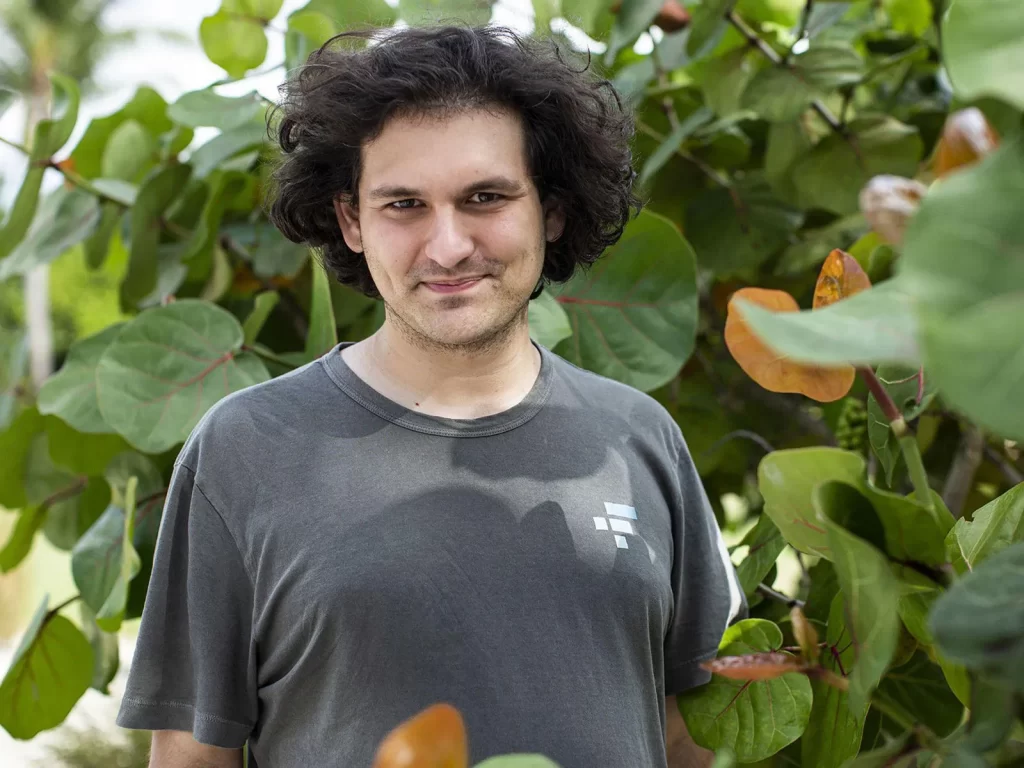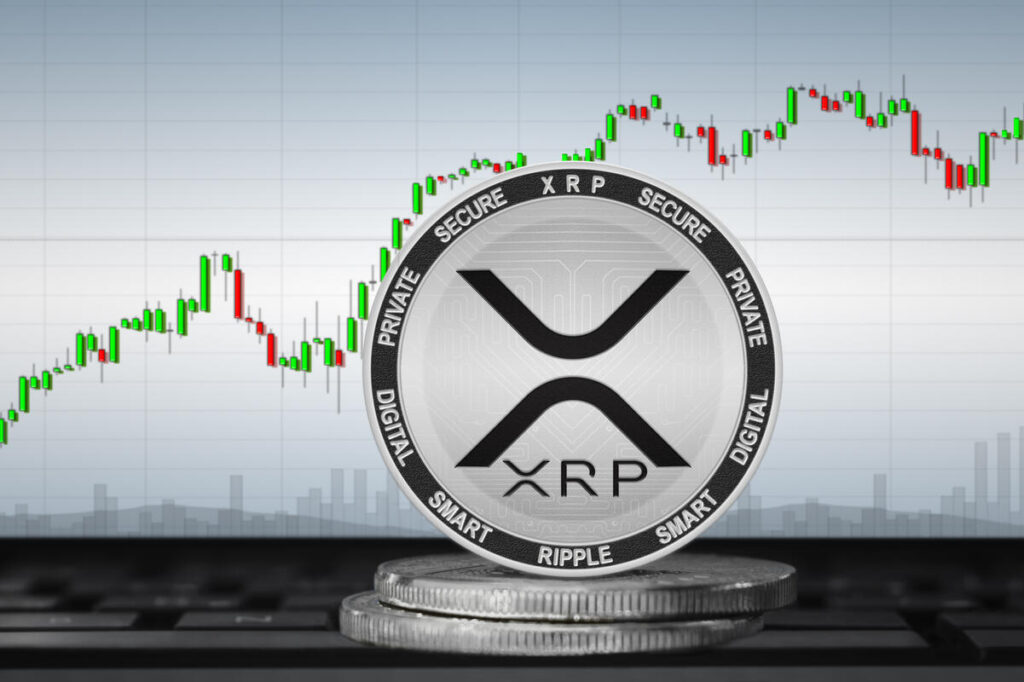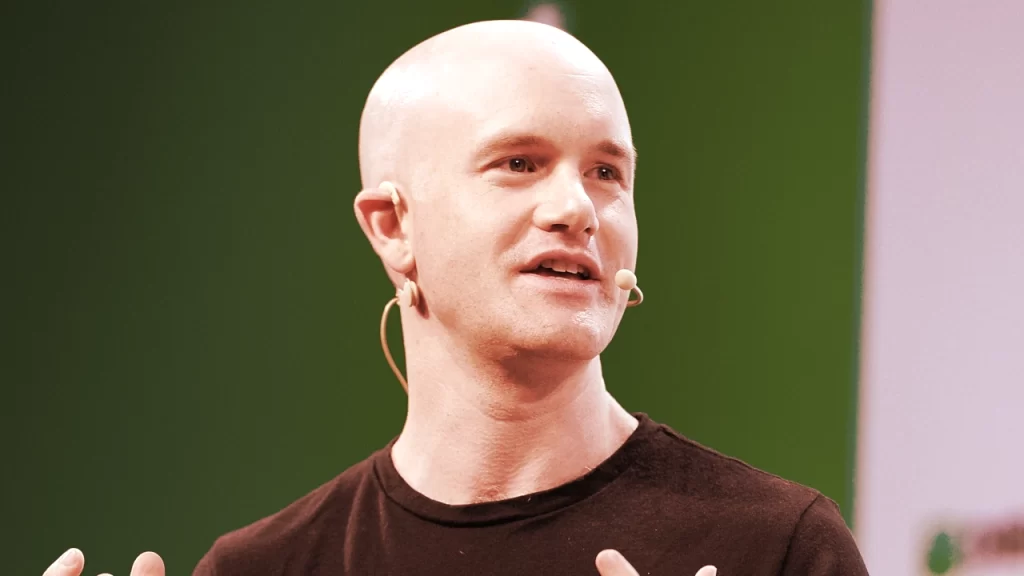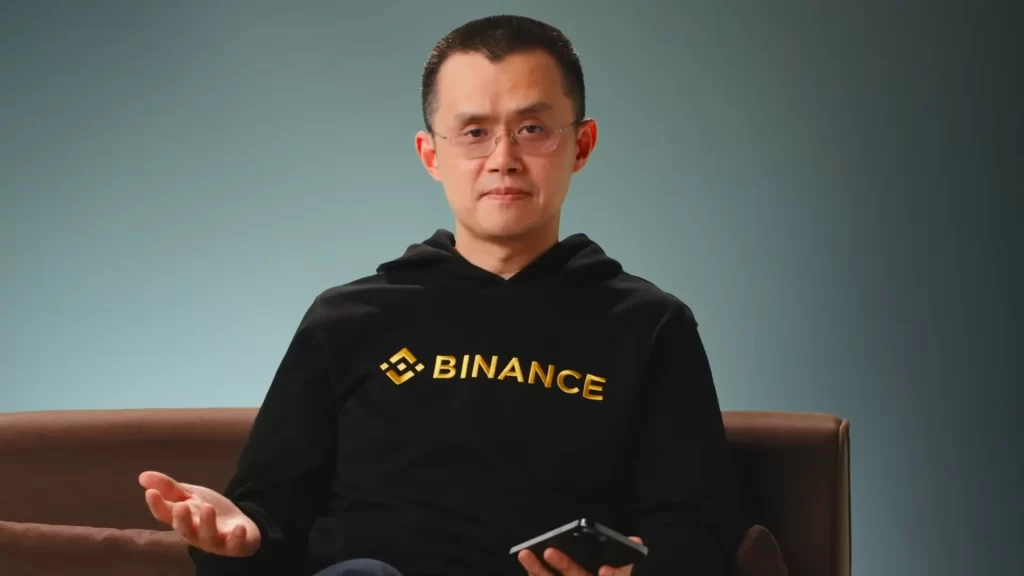On October 24th, major cryptocurrency exchanges experienced a noteworthy net outflow of funds, coinciding with Bitcoin (BTC) briefly reaching the $35,000 mark for the first time in a year.
This exodus of funds from exchanges is viewed as a positive sign in the crypto space, indicating that traders are transferring their assets to secure storage, anticipating an uptick in prices.
According to data shared by crypto analytics firm CoinGlass, the largest outflow was witnessed on Binance, with more than $500 million leaving the platform over the past 24 hours.
Following this, crypto.com recorded $49.4 million in outflows, and OKX saw $31 million departing its exchange. Most other exchanges reported outflows of less than $20 million.
Concerns reminiscent of a “bank run” surfaced after the collapse of FTX in November 2022, with investors fearing a similar scenario.
However, the recent outflows appear to be more aligned with trader sentiment rather than panic-induced withdrawals during the peak of the bear market.
Data from Glassnode corroborates this trend, showing that Bitcoin outflows from exchanges have increased in tandem with the surge in BTC’s price.
This price surge also resulted in the liquidation of approximately $400 million worth of short positions, with 94,755 traders witnessing their derivative positions being liquidated within the last 24 hours. The largest single liquidation order took place on Binance, amounting to $9.98 million.
READ MORE;Ripple’s Legal Victory: Slim Odds for SEC’s Appeal in Ongoing Lawsuit
On-chain analysts drew attention to the market value to realized value (MVRV) ratio, a key metric comparing an asset’s market value to its realized value.
It is calculated by dividing a cryptocurrency’s market capitalization by its realized capitalization, which is based on the average price at which each coin or token was last moved on-chain.
The current MVRV ratio stands at 1.47, just shy of the 1.5 threshold that historically heralds the beginning of a bull market.
The crypto market as a whole has seen a remarkable 7.3% increase in its total market capitalization over the last 24 hours, reaching $1.25 trillion, its highest valuation since April.
This surge is believed to be fueled by speculation surrounding the imminent launch of a spot Bitcoin exchange-traded fund (ETF), further amplifying the bullish sentiment in the crypto ecosystem.
With the MVRV ratio inching closer to 1.5, many enthusiasts are optimistic about Bitcoin’s potential to reach $40,000 in the coming days.
Other Stories:
Ripple’s Legal Victory: Slim Odds for SEC’s Appeal in Ongoing Lawsuit
Fight Me: Triumphia Origins NFTs mint out in under 2 minutes ahead of the Fight Me game launch
Uniswap Founder Burns 99% of HAY Token Supply, Shaking Crypto Markets
According to lawyer Bill Morgan, closely following the ongoing lawsuit between Ripple and the United States Securities and Exchange Commission (SEC), the chances of the SEC winning its appeal are incredibly slim.
Morgan took to social media, specifically X (formerly Twitter), to express his opinion on the matter. He emphasized that there is no glaringly apparent error in the case that would support an appeal, except for one point that favors Ripple.
In particular, he pointed out that the sales of XRP, Ripple’s cryptocurrency, do not meet at least two key criteria of the Howey test, a legal standard used to determine whether an asset qualifies as a security.
Morgan generously assigned a mere 3% likelihood of success for the SEC’s appeal against Ripple.
Morgan’s assessment came in response to data shared by prominent attorney Jeremy Hogan, who presented statistics on the success rates of appeals in various types of lawsuits.
According to this data, the SEC faces a meager 14.2% chance of prevailing in its appeal against Ripple.
READ MORE: Ripple Scores Legal Victory, But LBRY’s Closure Raises Questions About SEC’s Approach
This lawsuit between the SEC and Ripple has spanned three years, with a recent ruling by a judge declaring that the sale of XRP on cryptocurrency exchanges does not violate securities laws.
This ruling was a significant victory for Ripple, which had suffered substantial setbacks as major crypto exchanges delisted XRP during the lawsuit.
The SEC attempted to appeal this judgment but was unsuccessful, with Judge Analisa Torres ruling that the regulator had failed to demonstrate controlling questions of law or substantial grounds for differences of opinion.
In a surprising turn of events, the SEC decided to dismiss all charges against Ripple CEO Brad Garlinghouse and executive chair Chris Larsen.
Ripple’s chief legal officer, Stuart Alderoty, characterized this move by the SEC as a “surrender,” while Ripple itself referred to it as a “stunning capitulation.”
Morgan also highlighted that the SEC has now dismissed the remainder of the case, meaning there will be no trial in the coming year.
He predicted that a final judgment would likely be issued sometime next year, bringing an end to this protracted legal battle between Ripple and the SEC.
Other Stories:
Former FTX CEO Sam Bankman-Fried Faces Legal Scrutiny Over Alleged $8 Billion Financial Discrepancy
Bitcoin Rockets to $30,000 Amidst Strong Market Sentiment
Binance Expands Euro Services with New Fiat Partners Post-PaySafe Departure
A Web2 gaming studio entering Web3 is always an event. But the launch of Triumphia Origins, an NFT collection associated with the game Fight Me by Nekki was even more special, as the studio boasts a billion game downloads. It’s no surprise that the collection sold out in two minutes.
Triumphia Origins: your golden ticket to the Fight Me game by Nekki on Polygon
Nekki is the game publisher behind such action and strategy hits as Shadow Fight, Vector, and 11×11. The studio, which is partnered with Polygon and MetaMask, is now building its first Web3 game, Fight Me.
Watch the impressive cinematic trailer
The first part of the project to go live is the Triumphia Origins NFTs, a collection of 10,000 fighter characters named after Triumphia – the city where the events of Fight Me unfold.
All Triumphia Origins holders are entitled to a variety of privileges:
- a whitelist spot on the main Fight Me mint, planned for November 2023 on Magic Eden;
- early access to the Fight Me game (Q1 2024);
- member-only contests and VIP activities on Discord, and more.
What happened during the Triumphia Origins mint on Magic Eden?
Triumphia Origins held a free mint on Magic Eden on October 13. It started at 5 pm UTC with two hour-long rounds for the Discord OGs – a logical step, considering how much Nekki values its community. The next round was first come, first served – and saw 6,000 Triumphia NFTs minted in
less than two minutes. As a result, the mint never got to the public round.
Such a level of interest is not surprising, given the large following of Fight Me. In just a few short months, Nekki built one of the most passionate and active Discord communities in all of GameFi.
The server hosts regular tournaments between the two leading fighter squads, as well as frequent contests. The recent contest where users were asked to share their personal achievements garnered thousands of submissions.
About Nekki and Fight Me
Nekki is a Cyprus-based game publisher known for its high-quality action and strategy franchises, including Shadow Fight – one of the industry’s biggest fighting franchises. Overall, Nekki’s games have been downloaded over a billion times – and all of this growth has been organic. Among the studio’s other achievements:
- Over 12 million followers across all franchises’ social accounts;
- Never had to raise funds from outside investors.
- Released successful mobile, browser, and social games;
- 300+ professionals working for the studio;
- Built the popular animation tool Cascadeur, used by 100,000 animators and developers.
The company’s first Web3 title, Fight Me, is a Polygon-based browser game that combines Play-to-Own and Compete-to-Earn elements.
In Fight Me, players will be able to collect fighters, form fight clubs, helping their squads win titles in tournaments. Along the way, they will unlock weapons, skills, and random power-ups. Users can then sell their upgraded fighters in the secondary market.
Fight Me’s relaxed gameplay, no-download browser format, and fiat-friendly economics will also appeal to Web2 games – an audience that already knows and loves Nekki’s products.
The main Fight Me NFT mint is scheduled for November 2023 – with whitelist spots reserved for all the Triumphia Origins holders, like we noted above. Follow Fight Me on X and Discord for updates.
Ripple recently celebrated a significant legal victory in its ongoing battle with the U.S. Securities and Exchange Commission (SEC).
On October 19th, the SEC announced its intention to dismiss all claims against Ripple CEO Brad Garlinghouse and Executive Chair Chris Larsen.
This development marked a crucial moment in the civil case initiated by the SEC in late 2020, offering a glimmer of hope for Ripple.
However, the cryptocurrency community’s elation over this news was tempered by another announcement on the same day. LBRY, a prominent blockchain file-sharing and payment network, revealed that it was shutting down its operations.
LBRY cited mounting debts, owed to the SEC, its legal team, and a private creditor, amounting to several million dollars.
LBRY’s creators are renowned for their work on Odysee, an open-source video-sharing platform aimed at providing a decentralized alternative to mainstream platforms like YouTube.
LBRY had been embroiled in its legal dispute with the SEC, which filed a lawsuit against the platform in March 2021 for alleged securities law violations, mirroring its action against Ripple.
Despite the SEC reducing LBRY’s initial $22 million penalty to around $111,000, the company chose not to pursue further legal action.
READ MORE: Binance.US Shifts Withdrawal Options, Encourages Users to Convert USD to Crypto
The crypto community reacted with mixed emotions. While celebrating Ripple’s victory, many expressed concern about the regulatory overreach and its consequences for smaller players in the industry.
Notably, XRP, Ripple’s cryptocurrency, boasts a market capitalization of $27 billion, while LBRY credits were valued at only $5.5 million at the time.
Critics argued that the stark contrast in resources between Ripple and LBRY underscored how well-funded entities can leverage their financial strength in legal battles against regulatory bodies.
Some questioned the SEC’s priorities, criticizing it for targeting a small American company like LBRY while failing to prevent major issues in the cryptocurrency space.
Pro-XRP lawyer John Deaton condemned the SEC’s actions against LBRY, citing the agency’s inability to secure a substantial penalty despite the considerable resources expended.
He labeled the SEC as a “broken, failed, and inept agency.”
Despite Ripple’s legal win, industry observers anticipate that the legal battle with the SEC is far from over.
The penalty phase of the litigation remains contentious, with lawyers predicting a protracted struggle over the appropriate penalties for Ripple’s institutional sales of XRP.
The SEC has signaled its intent to pursue this aspect further, and discussions between the two parties are set to continue until November 9, 2023.
Other Stories:
Explosive Growth in Ethereum Liquid Staking Derivatives Finance (LSDFi) Ecosystem
Coinbase’s Chief Legal Officer Urges Cryptosphere to Oppose Proposed U.S. Tax Regulations
Ripple Fuels Speculation of Potential IPO Amidst Legal Battles
On October 20th, Bitcoin made a significant move, surging to $30,000 as Wall Street opened its doors. Analysts were closely monitoring the weekly closing price to gauge the strength of this rally.
BTC’s price reached a two-month high of $30,233 on Bitstamp, maintaining its strength during the Asian trading session.
However, as of the time of writing, it experienced a slight dip, dropping just below $29,500.
The ongoing volatility in the market had experts emphasizing the importance of a strong weekly candle close to confirm the sustainability of the rally.
One key metric being watched closely was the 100-week moving average (MA) at $28,627. Keith Alan, co-founder of Material Indicators, emphasized the significance of the weekly candle closing above this level, with subsequent candles staying above it without any downward wicks.
He noted that Bitcoin would need to overcome resistance levels at $30.5k, $31.5k, and ultimately $33k to validate a bull breakout.
Trader Pentoshi identified $28,900 as a critical support level that bulls needed to maintain. Meanwhile, another trader, Skew, suggested that a sweep of late long positions could create an entry opportunity before the upside resumed.
Taking a longer-term perspective, the trading team at Stockmoney Lizards remained optimistic, predicting that the resistance just above $30,000 would soon be breached.
READ MORE:Binance.US Shifts Withdrawal Options, Encourages Users to Convert USD to Crypto
They pointed to a chart fractal comparing BTC/USD in 2023 to its 2020 breakout, suggesting that significant upward movement was imminent.
The approval of the United States’ first Bitcoin spot price exchange-traded fund (ETF) was seen as a potential catalyst for this surge.
In their commentary, Stockmoney Lizards addressed concerns about the timing relative to the 2020 halving event, stating that the current circumstances, including mass adoption and potential ETF approval, would be the driving forces behind Bitcoin’s price movement.
They also mentioned the upcoming block subsidy halving scheduled for April 2024, which could further impact the cryptocurrency landscape.
In conclusion, Bitcoin’s price surged to $30,000 on October 20th, with market participants closely monitoring the weekly candle close to confirm the strength of the rally.
Key support and resistance levels were identified, and traders remained optimistic about the cryptocurrency’s future, especially in the context of potential ETF approval and upcoming halving events.
Other Stories:
Ripple Fuels Speculation of Potential IPO Amidst Legal Battles
Coinbase’s Chief Legal Officer Urges Cryptosphere to Oppose Proposed U.S. Tax Regulations
Explosive Growth in Ethereum Liquid Staking Derivatives Finance (LSDFi) Ecosystem
In the ongoing fraud trial of Sam Bankman-Fried, prosecutors have taken a significant step by requesting the judge to clarify to the jury that the defendant’s claim of being an effective altruist should not serve as a valid defense.
Bankman-Fried stands accused of embezzling billions of dollars from FTX customers for personal purposes, including political contributions, real estate investments, and other ventures.
In a letter submitted to the court, the prosecution pointed out that Bankman-Fried’s legal team has attempted to argue that he should not be charged with fraud because he intended to reimburse customers through strategies like FTX’s growth and profitable investments.
However, the prosecution strongly contends that this line of argument lacks relevance and does not absolve him of the serious fraud allegations he faces.
Bankman-Fried’s defense strategy has been centered around portraying him as a philanthropist deeply committed to creating a positive global impact.
They argue that his support for effective altruism, a philosophical movement that advocates for impactful ways of helping others, such as charitable donations or pursuing meaningful careers, reflects his underlying motivations.
The prosecutors, on the other hand, maintain that effective altruism cannot serve as a valid defense against fraud.
READ MORE:Coinbase’s Chief Legal Officer Urges Cryptosphere to Oppose Proposed U.S. Tax Regulations
They describe it as an “unconventional philosophy regarding the ethics of deception and theft” and assert that it has no bearing on the necessary mental state (mens rea) required for committing fraud.
The trial, which is currently in its third week in New York, has featured several key witnesses presented by the prosecution. These witnesses include Caroline Ellison, former CEO of Alameda Research; Nishad Singh, former engineering chief of FTX and Alameda; and Gary Wang, a co-founder of the now-defunct FTX.
According to their testimonies, Bankman-Fried directed them to acquire funds from FTX customers without their knowledge or consent for purposes unrelated to FTX’s regular operations.
Furthermore, they contend that Bankman-Fried was well aware of the potential risks and consequences of his actions and actively concealed them from regulatory authorities, auditors, and the public.
The prosecution has backed up these claims with a trove of evidence, including emails, messages, spreadsheets, and bank records that expose the extent of Bankman-Fried’s deceptive scheme.
The trial is approaching its conclusion, with the finalization of jury instructions expected next week, followed by closing arguments. Subsequently, the jury will begin deliberations to determine the legal fate of Sam Bankman-Fried.
Other Stories:
Binance.US Shifts Withdrawal Options, Encourages Users to Convert USD to Crypto
Explosive Growth in Ethereum Liquid Staking Derivatives Finance (LSDFi) Ecosystem
Thor Technologies and its founder, David Chin, have encountered a significant legal setback in an ongoing dispute with the United States Securities and Exchange Commission (SEC) concerning the unapproved sale of $2.6 million in cryptocurrency securities.
On October 19th, the SEC announced a victory in the case, as a default judgment was issued against Chin and Thor by the U.S. District Court for the Northern District of California, San Francisco, on October 18th.
A default judgment is issued by a court when one party in a lawsuit fails to respond or defend their case within the legal timeframe.
This typically happens when the defendant doesn’t file a response to the plaintiff’s complaint or fails to appear in court as required.
According to the SEC’s complaint filed on December 21, 2022, Chin and Thor Technologies raised $2.6 million from around 1,600 investors between March and May 2018.
This capital was intended for a software platform targeting gig economy workers and companies.
The SEC’s argument is that the sale of Thor tokens was not registered with the SEC and was promoted as investment opportunities.
READ MORE:Coinbase’s Chief Legal Officer Urges Cryptosphere to Oppose Proposed U.S. Tax Regulations
These funds were generated by selling the Thor (THOR) cryptocurrency, with approximately 200 investors in the United States.
The SEC accused Chin and Thor of violating federal securities laws by issuing and selling unregistered Thor tokens without meeting the necessary exemption requirements.
Moreover, the SEC alleged that Chin and Thor provided investors with false and misleading information about the project’s progress, collaborations, and earnings.
Despite Chin’s commitment to repay investors after halting operations in April 2019 due to regulatory issues, the SEC found no reimbursements to investors. Instead, some earnings were redirected into Chin’s personal bank account.
As part of the judgment, Chin and Thor have been ordered to pay a total of $903,193.06, which includes disgorgement of $744,555 and prejudgment interest of $158,638.06.
This amount reflects the total funds raised from investors minus any repayments made.
Additionally, permanent injunctions have been imposed on Chin and Thor, prohibiting their involvement in future offerings of cryptocurrency securities.
However, Chin is still permitted to buy or sell securities from his personal account.
Other Stories:
AI + Blockchain: Crafting the Blueprint for the Future
Explosive Growth in Ethereum Liquid Staking Derivatives Finance (LSDFi) Ecosystem
Binance.US Shifts Withdrawal Options, Encourages Users to Convert USD to Crypto
On October 16, Ripple, the fintech payments company, posted a new job opening for the position of Senior Manager of Shareholder Communications, which can be based in various locations within and outside the United States.
This announcement has stirred speculation among cryptocurrency enthusiasts, leading many to believe that it could be a subtle indication of Ripple’s intention to go public.
The job posting outlines that the selected candidate will play a crucial role in direct communication with shareholders, a duty typically associated with publicly traded companies.
Their primary responsibility will involve crafting and executing communication and relationship management strategies aimed at both existing and potential investors, as well as financial analysts.
One of the key highlights of the job description is the need to develop strategic plans tailored for significant events such as mergers and acquisitions, investments, liquidity events, and other pivotal moments in the company’s journey.
Additionally, the role involves the creation of investor-centric materials, including presentations, fact sheets, case studies, and analyses.
These materials serve the critical purpose of informing and educating prospective investors about the company’s performance, a necessary step in the preparations for an initial public offering (IPO).
READ MORE:Bitcoin Price Predicted to Soar to $128,000 by 2025
Routine communications, such as quarterly updates, and the maintenance of a comprehensive shareholder database, also fall under the purview of this role.
The job posting has sparked excitement within the XRP community and among Ripple supporters, with many speculating that it may indeed be a hint at an impending IPO.
While some key executives within the company have hinted at the possibility of going public, no specific timing has been disclosed.
Ripple has been in the spotlight recently due to an ongoing lawsuit brought forth by the U.S. Securities and Exchange Commission (SEC) alleging that XRP, the cryptocurrency associated with Ripple, is a security.
However, in a significant victory for Ripple, a judge ruled in July that XRP does not qualify as a security when traded on digital asset exchanges.
Despite the legal challenges in the United States, Ripple has emphasized that the majority of its remittance business operates outside of America, underscoring its global reach and potential for growth.
In conclusion, Ripple’s job posting for a Senior Manager of Shareholder Communications has sparked speculation about the company’s intentions, with many interpreting it as a potential sign of an upcoming IPO.
This development comes amid ongoing legal battles with the SEC, highlighting Ripple’s resilience and determination to thrive in the cryptocurrency industry.
Other Stories:
SYS Labs Unveils Rollux Phase 2
U.S. Government Holds Over 194,000 Bitcoin, Valued at $5.3 Billion
Ethereum Co-Founder Vitalik Buterin Clarifies $15 Million USDC Transaction
Coinbase’s Chief Legal Officer, Paul Singh Grewal, has issued a rallying cry to the cryptocurrency community, urging them to unite against the United States Treasury’s proposed tax reporting regulations on cryptocurrencies.
Grewal argues that these regulations could establish a concerning precedent for extensive surveillance.
Taking to the platform formerly known as Twitter (referred to here as “X”), Grewal expressed his apprehensions about the proposed crypto tax reporting rules, asserting that they exceed the congressional mandate aimed at setting tax reporting guidelines.
He warned that if these regulations were to become law, they could place “digital assets at a disadvantage and threaten to harm a nascent industry when it’s just getting started.”
On August 25, the U.S. Internal Revenue Service (IRS) unveiled a draft of proposed regulations for crypto tax reporting.
These rules would mandate crypto brokers to utilize a new form for reporting, simplifying tax filing and combatting tax evasion.
The regulations encompass both centralized and decentralized exchanges, crypto payment processors, select online wallets, and crypto brokers.
The U.S. Treasury Department asserts that this new form would streamline the tax filing process, helping taxpayers ascertain their tax liabilities without requiring intricate calculations or relying on digital asset tax preparation services.
READ MORE: Ethereum Co-Founder Vitalik Buterin Clarifies $15 Million USDC Transaction
If approved, the new tax regime is scheduled to take effect in 2026, with brokers obliged to commence reporting 2025 transactions starting in January 2026, using Form 1099-DA.
Nevertheless, several U.S. lawmakers have urged the IRS to implement crypto tax reporting requirements before the year 2026.
Contrary to the Treasury Department’s claims that these crypto tax reporting rules align digital assets with traditional financial reporting, Coinbase’s legal officer contends otherwise.
Grewal, in his X post, pointed out that the proposed rules could establish a “dangerous precedent for surveillance of the everyday financial activities of consumers by requiring nearly every digital asset transaction – even the purchase of a cup of coffee – to be reported.”
Grewal also raised concerns about the substantial user data collection mandated by these regulations, emphasizing that it serves no “legitimate public purpose.”
He argued that this data collection burden would disproportionately affect Web3 startups, imposing costly requirements while inundating the IRS with an overwhelming amount of data that they may struggle to process and analyze.
Other Stories:
Bitcoin Price Predicted to Soar to $128,000 by 2025
SYS Labs Unveils Rollux Phase 2
U.S. Government Holds Over 194,000 Bitcoin, Valued at $5.3 Billion
Binance.US, a prominent cryptocurrency exchange, has recently made significant updates to its terms of service, signaling a significant change in its withdrawal options for users.
The modifications, which were introduced on October 16th, mainly pertain to the “BAM Fiat Wallet” section, focusing on services related to the custody of United States dollars.
In the revised terms of service, Binance.US explicitly states that users now have the option to “convert” their holdings in U.S. dollars into stablecoins or other digital assets in order to facilitate withdrawals from their accounts.
This shift has raised concerns among cryptocurrency enthusiasts, with some expressing their apprehensions on social media platforms like Twitter.
One observer on Twitter commented, “Binance seizes USD. Don’t worry, you can buy Tethers printed out of thin air or other questionable cryptocurrencies.”
This sentiment reflects the unease among users about the changing dynamics of USD withdrawals on the platform.
It’s worth noting that, consistent with previous updates, Binance.US emphasizes that digital assets held on the platform are not covered by insurance protection provided by the Federal Deposit Insurance Corporation (FDIC).
READ MORE: Bitcoin Price Predicted to Soar to $128,000 by 2025
The company states that in the event of terminating its relationship with a USD custodian without finding a replacement, it will notify users and provide a window for withdrawing their U.S. dollar deposits.
Any funds not withdrawn by the specified deadline will be converted into stablecoin digital assets and transferred to users’ digital asset accounts.
This recent update differs significantly from the terms of service in May 2023, where Binance.US had previously indicated that it had been working with USD custodians to ensure the safety of U.S. dollar deposits in omnibus accounts at FDIC-insured banks, potentially making them eligible for FDIC insurance coverage.
Binance.US has been undergoing a transition to becoming a “crypto-only exchange” since June 2023, leading to the suspension of USD deposits and withdrawals.
This suspension has been in place until the exchange can establish secure banking partnerships, and it reflects the ongoing challenges the platform faces in maintaining its fiat on-ramps and off-ramps.
In summary, the recent changes to Binance.US’s terms of service indicate a significant shift in its withdrawal options for users, moving away from direct USD withdrawals and encouraging the conversion of USD holdings into digital assets.
This aligns with the platform’s transition towards becoming a crypto-only exchange and the ongoing challenges it faces in its fiat operations.
Other Stories:
Ethereum Co-Founder Vitalik Buterin Clarifies $15 Million USDC Transaction
U.S. Government Holds Over 194,000 Bitcoin, Valued at $5.3 Billion






